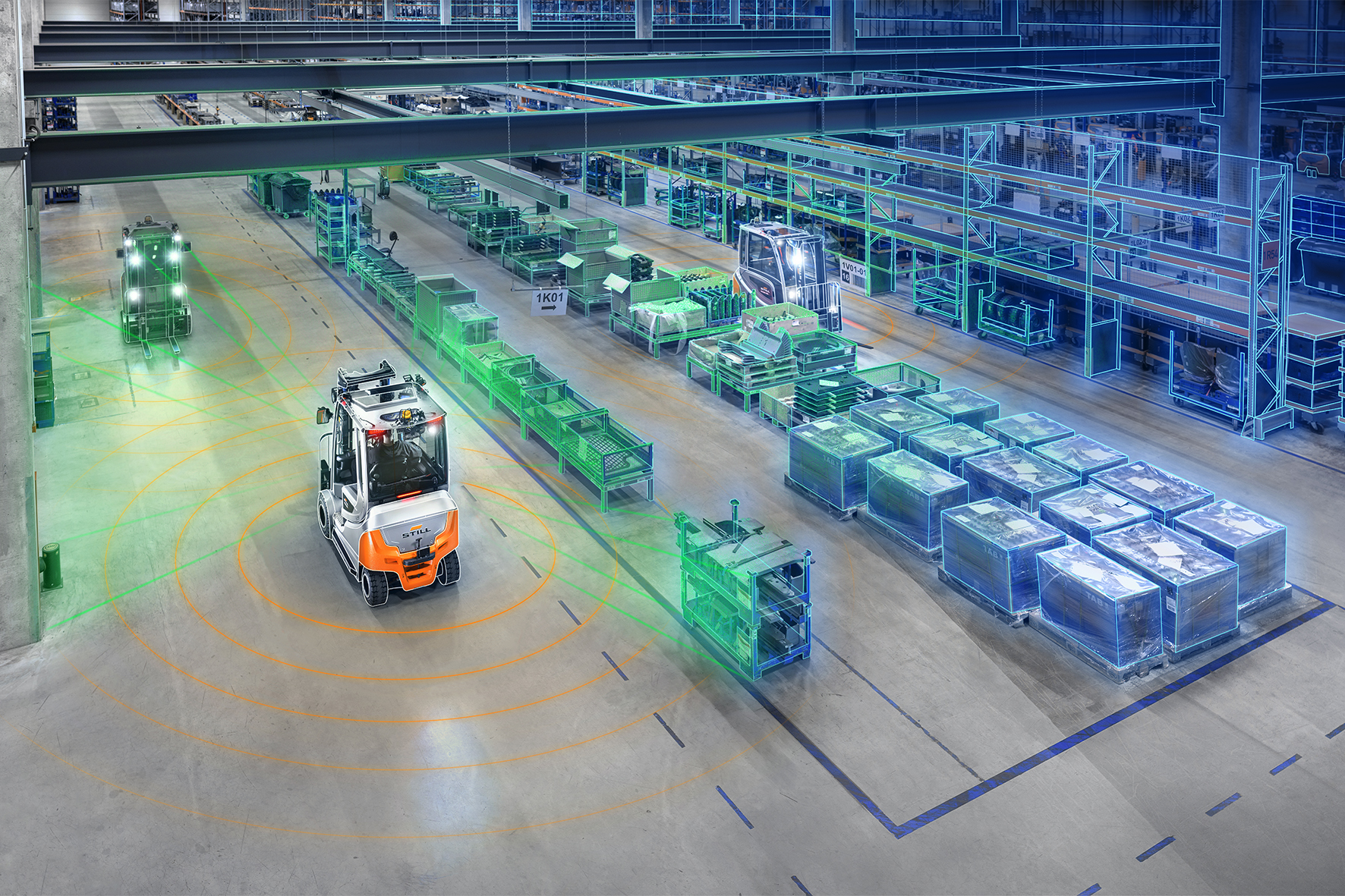Beiersdorf AG is relying on the expertise of STILL for the design and implementation of the production and warehouse supply of its state-of-the-art production centre for cosmetic products in Seehausen near Leipzig.
This is the first major joint project for the two long-standing Hamburg-based companies. In a six-month selection process, the STILL automation experts impressed the jury with their extensive experience in internal logistics and in-depth expertise in the automation of logistics processes. STILL also brought KION’s sister company Dematic on board. As part of this project, Dematic is supplying a conveyor system for pallets that links all subsystems together.
“I think that in addition to our technical concept, we were able to impress above all with our solution-oriented approach and the constructive teamwork with the customer and his planning partner,” says Florian Kratzer, International Key Account Manager Automated Solutions.
This is also confirmed by Beiersdorf’s logistics team: “Right from the start, the communication was open, appreciative and very results-oriented. The team repeatedly presented us with alternative approaches and made competent suggestions during the planning process. This eye-to-eye exchange and the excellent consulting services were key factors in our decision to choose STILL as a partner. We are very much looking forward to working with them in the future.”
The new facility near Leipzig is one of Beiersdorf’s largest investment projects in Europe. In order to make the plant sustainably fit for the future, the production supply processes are to be integrated according to the latest standards of efficient warehouse organisation. Here, automation in particular is of decisive importance.
For where driverless transport systems interact perfectly with each other, with manually operated equipment and intelligent warehouse elements to ensure a flawless flow of materials, productivity can be increased, processes optimised, costs reduced and capacities increased.
“Projects of this dimension are not commonplace in Germany. They offer specialists like us an outstanding opportunity to contribute their entire spectrum of know-how,” explains Florian Kratzer. “We are all the more pleased to be a partner in this innovative project at a structurally important location like Leipzig.”
Specifically, it is about goods receiving, quality control, internal transport and storage of incoming materials. The next step is to make them available and transport them on to production. For this purpose, STILL has designed an integrated system in close cooperation with Beiersdorf.
For goods receipt and dispatch, manual STILL electric forklift trucks and warehouse technology equipment are used. Conveyor technology from the group’s sister company Dematic provides the link between the goods-in area and the narrow-aisle warehouse, where six fully automated STILL MX-X iGo systems very narrow-aisle trucks are in operation.
In addition, the conveyor system ensures onward transport from the narrow-aisle warehouse to production, where six STILL EXV iGo systems high lift stackers take over the goods. These provide fully automated transport to Beiersdorf’s production facilities.
“The special challenges of the project arise from its volume and the resulting complexity,” explains Florian Kratzer. “We have heavy loads in different dimensions, high racks and long distances that have to be covered quickly and safely.” Thus, around 140m of conveyor technology are installed and about 25 manual and automated vehicles are used. A large number of different load carriers weighing up to 1,250kg each had to be taken into account and a storage height of up to 12.7m in the fully automated VNA narrow-aisle warehouse had to be made possible.







